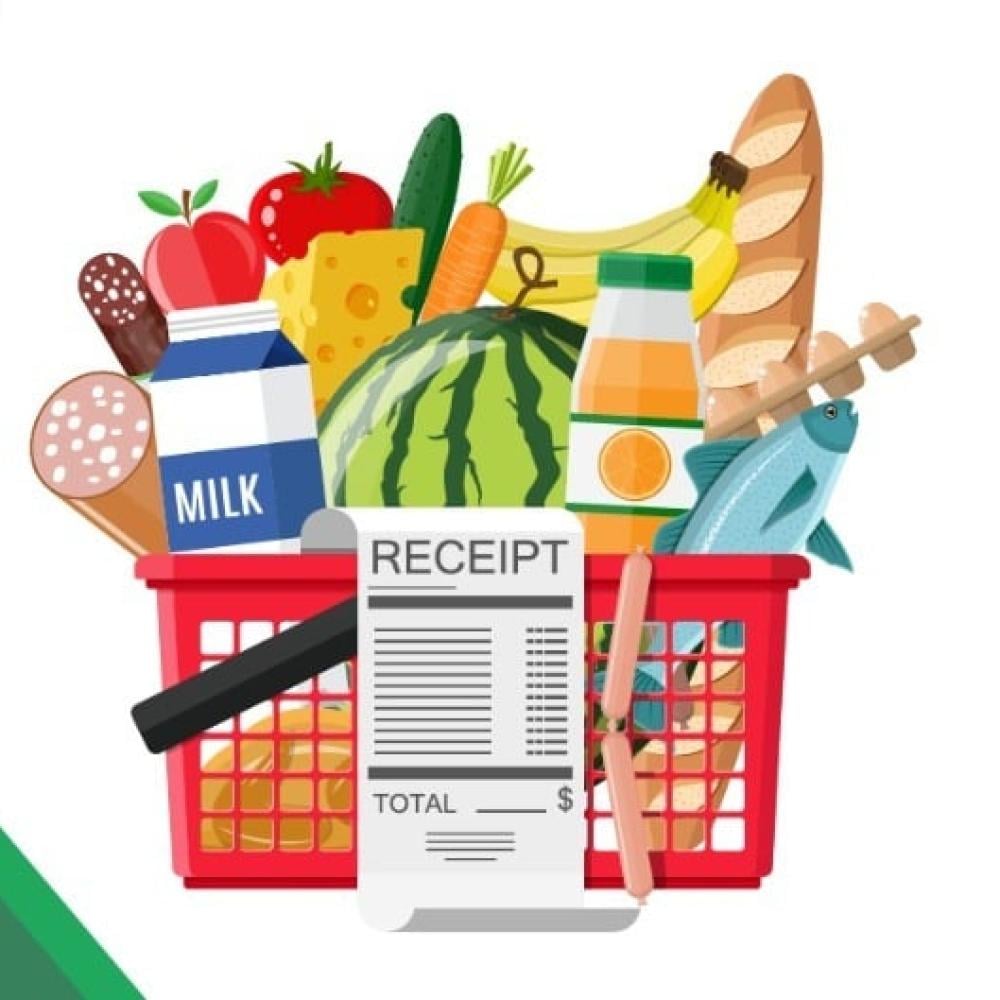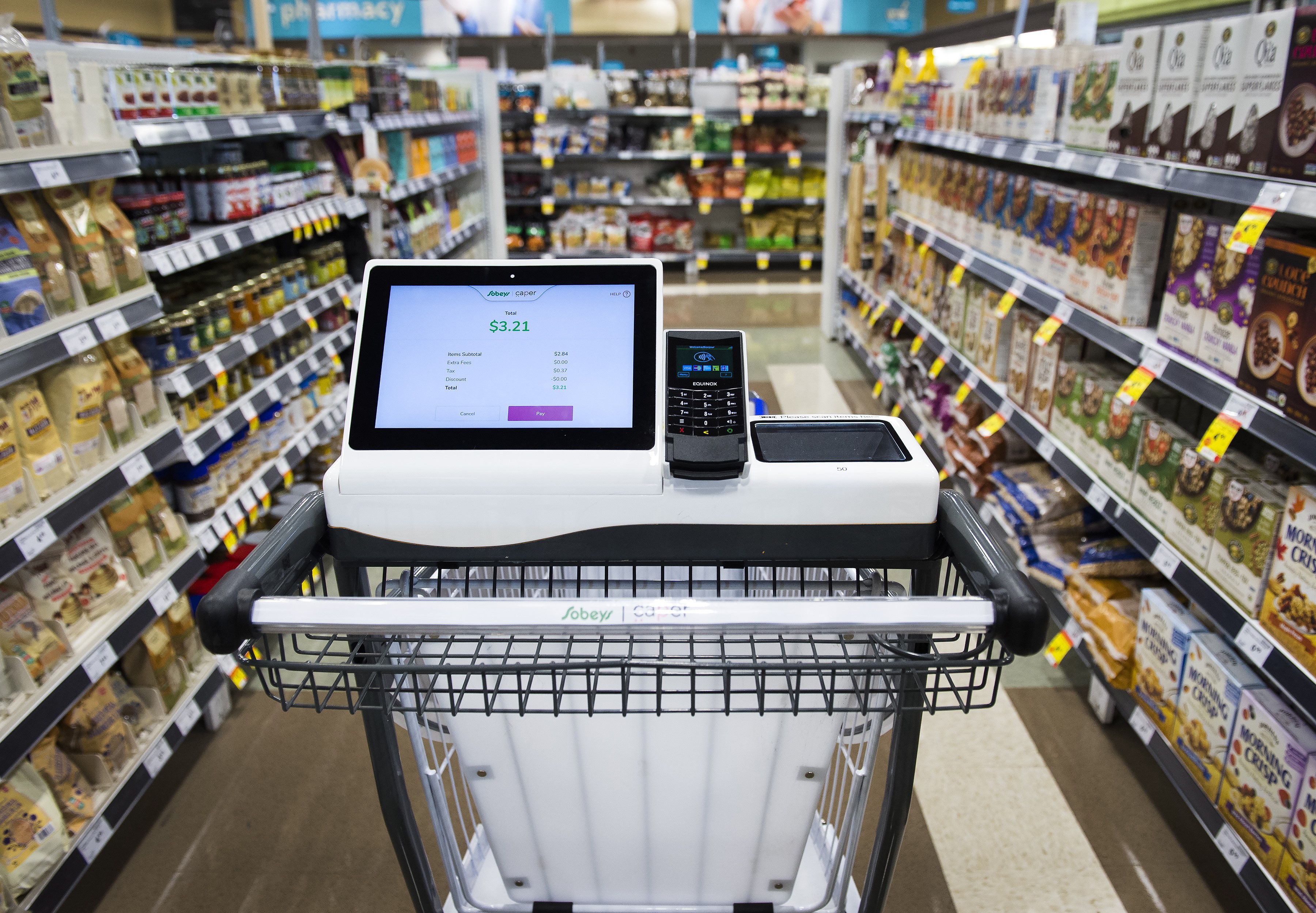
**Unlocking Savings: A Comprehensive Guide to Wholesale Food Prices from Trusted Suppliers**
Welcome to your ultimate resource for navigating the world of wholesale food prices! If you're a food business owner or simply looking to cut costs on your grocery shopping, understanding the intricacies of wholesale pricing is essential. Our comprehensive guide will walk you through how to navigate wholesale food pricing, ensuring you find the best deals without compromising quality.
**How to Navigate Wholesale Food Pricing: Tips for Finding the Best Deals**
Finding the best deals in wholesale food pricing can be a daunting task. We'll provide you with expert tips on how to effectively compare prices and identify trusted suppliers who consistently offer value. Learn to leverage market insights and seasonal trends to make informed purchasing decisions.
**Comparing Wholesale Food Prices: A Look at Trusted Suppliers in the Industry**
By thoroughly comparing wholesale food prices, you can identify top suppliers with competitive offerings. Our insights into the industry will help you understand how different suppliers stack up against one another, aiding your decision-making process.
**The Benefits of Buying Wholesale: Smart Shopping for Food Businesses**
Buying wholesale not only helps you save money but also enhances your profit margins. Explore the numerous benefits of sourcing food at wholesale prices and learn how smart shopping can transform your business operations.
**Top 5 Trusted Suppliers for Wholesale Food: Reviews and Price Comparisons**
Discover the top five trusted suppliers for wholesale food. We provide detailed reviews and price comparisons to help you choose the best options for your needs. Our curated list ensures that you have access to reliable suppliers who prioritize quality.
**Exploring the Advantages of Sourcing Food at Wholesale Prices**
Sourcing food at wholesale prices can lead to substantial savings for your business. We’ll dive into the advantages, including bulk purchasing discounts and improved inventory management practices that can enhance your profitability.
**Wholesale Food Prices Explained: How to Get the Best Value for Your Business**
Understanding wholesale food prices is crucial for getting the best value. We break down various pricing structures and provide strategies to ensure you maximize your budget while maintaining product quality.
**Trusted Suppliers: Your Key to Competitive Wholesale Food Pricing**
Partnering with trusted suppliers is key to accessing competitive wholesale food pricing. Learn how to identify reliable suppliers and the importance of building long-term relationships for consistent savings.
**Finding the Best Wholesale Food Prices: A Step-by-Step Guide**
Our step-by-step guide will lead you through the process of finding the best wholesale food prices. From researching suppliers to evaluating deals, we provide an actionable framework for successful purchasing.
**The Impact of Wholesale Food Prices on Your Budget: What You Need to Know**
Understanding the impact of wholesale food prices on your budget is vital. We'll discuss the factors that influence pricing and how to manage your costs effectively, ensuring your business stays on track financially.
Unlock your savings today by diving into the world of wholesale food prices with our expert guidance. Whether you're a seasoned buyer or new to the industry, our resources are designed for you!
How to Navigate Wholesale Food Pricing: Tips for Finding the Best Deals
Understanding the Wholesale Food Market
Diving into the wholesale food market can feel a bit overwhelming, especially for those new to sourcing bulk food supplies. Yet, grasping the fundamental concepts can make a significant difference in your purchasing strategy.Firstly, the wholesale food market operates on a volume-based pricing structure. This means that as you order larger quantities, the price per unit typically decreases. Understanding this can dramatically impact your buying decisions. For instance, when purchasing catering food supplies for an event, you might consider staggered orders. Ordering 100 units may attract a significant discount compared to ordering only 10.Another key aspect is knowing seasonal trends. Prices can fluctuate based on demand and availability. Fresh produce, for example, usually costs less when it's in season. Connecting with suppliers who provide updates on seasonal pricing can help you capitalize on the best deals.Lastly, don't underestimate the importance of researching various suppliers. Beyond just price comparisons, assess their reputation, delivery options, and customer service. A trusted supplier can save you from potential headaches down the line.
Tips for Negotiating with Suppliers
Negotiation can be a game-changer when it comes to wholesale food pricing. A little finesse in your approach can unlock some fantastic deals. Here are some practical tips to consider:
- Build Rapport: Establishing a friendly relationship with your supplier can lead to better deals. A simple “How was your weekend?” can open doors for a more personal connection.
- Know Your Numbers: Gather data on market prices to strengthen your bargaining position. If you’re aware of what competitors are paying for similar bulk food supplies, you’re in a better position to negotiate discounts.
- Leverage Volume: If you have consistent order patterns, make sure to highlight this during negotiations. Suppliers are more likely to offer better terms if they see you as a reliable, long-term customer.
- Ask for Discounts: Don’t shy away from directly asking for discounts, especially if you're purchasing in bulk or considering a long-term agreement.
- Flexible Shipping Options: Sometimes, suppliers can offer better prices based on shipping schedules. If you can be flexible on delivery times, this could lead to savings.
- Consider Loyalty Programs: Many suppliers offer loyalty programs or discounts for repeat customers. Inquire about such opportunities to maximize your savings.
Through understanding the wholesale food market and mastering negotiation skills, food businesses can effectively navigate pricing landscapes. A keen eye on seasonal trends combined with strong supplier relationships can maximize both quality and savings. In the next section, we’ll take a closer look at comparing wholesale food prices, focusing on trusted suppliers in the industry.
Comparing Wholesale Food Prices: A Look at Trusted Suppliers in the Industry
Top Trusted Suppliers to Consider
As you venture deeper into the wholesale food market, identifying reliable suppliers becomes crucial. Not all suppliers are created equal, and choosing trusted names can significantly impact your overall purchasing experience and cost management.Here are some top suppliers worth considering:
- Sysco: One of the largest foodservice distributors globally, Sysco offers a comprehensive selection of bulk food supplies, including fresh produce, meats, and specialty items. Their extensive network and reliability have made them a go-to for many businesses.
- US Foods: Known for a vast array of products, US Foods focuses on quality while providing competitive pricing options. Their commitment to customer service is commendable, making it easy for new customers to adapt to bulk purchasing.
- Gordon Food Service (GFS): GFS stands out for its focus on local sourcing, ensuring fresh and high-quality products. Their loyalty programs provide additional savings, especially beneficial for regular buyers.
- Restaurant Depot: Ideal for small and medium-sized businesses, Restaurant Depot features a unique membership model that offers cash-and-carry products at wholesale prices. Their no-frills approach can lead to significant savings.
- webstaurantstore.com: If you're looking for convenience, this online supplier offers a wide range of bulk and catering food supplies with the ease of online shopping. They often have exclusive discounts on various items.
Choosing a trusted supplier goes beyond pricing; it’s about establishing a reliable partnership that understands your unique needs.
Analyzing Price Variances among Suppliers
Once you've compiled a list of potential suppliers, the next step is to analyze price variances. This can be a pivotal moment in your procurement strategy.Here’s how to effectively compare prices:
- Consider Additional Costs: Price shouldn't be the only factor. Review shipping fees, delivery schedules, and any potential discounts for bulk orders.
- Evaluate Quality: The cheapest option isn’t always the best. Check for product reviews and ask for samples when permissible. An initial savings could lead to higher costs if the quality isn’t up to your standards.
- Trace Price Fluctuations: Keep track of price trends over time from different suppliers. It helps you understand who is consistent and who might hike prices unexpectedly.
By effectively comparing wholesale food prices and engaging with trusted suppliers, your food business can unlock deeper savings while ensuring quality. Next, we’ll explore the various benefits of buying wholesale, showcasing how you can make the most out of your food purchasing strategy.
The Benefits of Buying Wholesale: Smart Shopping for Food Businesses
Cost Savings and Profit Margins
Buying wholesale is a powerful strategy for food businesses, primarily due to the cost savings it can unlock. When operating in a competitive market, every dollar saved can add significantly to your bottom line — and who doesn’t want that?One of the most noticeable advantages is the lower price per unit. Suppliers typically offer discounts on bulk purchases, making it more affordable to stock up on essentials. For instance, if a restaurant buys two cases of olive oil at $60 per case, it may pay $10 less per case than if it had bought them individually. This not only impacts direct costs but also contributes to better profit margins:
- Increased Buying Power: Purchasing in bulk can lead to negotiating better deals with suppliers. If you’re consistently ordering large quantities, let your suppliers know that their pricing could be a determining factor in your long-term loyalty.
- Reducing Overhead: Less frequent purchasing not only saves time but can also cut down on transportation and handling costs. Fewer orders can lead to reduced delivery fees.
- Seasonal Discounts: Many suppliers offer promotions during off-peak seasons. Timing your purchases strategically can lead to even more savings.
Imagine a bakery that decides to buy flour in bulk instead of weekly. By purchasing a 50-pound bag rather than multiple 5-pound bags, the bakery not only obtains a better price per pound but also minimizes packaging waste and storage efforts.
Quality and Freshness of Goods
Cost savings are just one side of the coin; quality and freshness are equally essential, especially for food businesses that rely on reputation for success. When purchasing wholesale, businesses can often access fresher, higher-quality products that they may not find at retail prices.Here are some reasons why buying wholesale can improve product quality:
- Supplier Relationships: Purchasing from trusted suppliers often means you can establish a rapport, leading to a better understanding of how they source their goods. This can ensure that you're getting products that are not only fresh but also ethically sourced.
- Higher Turnover: Wholesale suppliers often have quicker turnover rates for their products, meaning you receive goods that are fresher. For example, a restaurant that buys directly from a produce supplier can benefit from seasonal fruits and vegetables that haven't spent time sitting on retail shelves.
- Specialty Items: If your food business requires unique ingredients, wholesale suppliers may stock items that local grocery stores don't carry. This access allows you to stand out with distinctive offerings.
In conclusion, the benefits of buying wholesale encompass both financial advantages and improvements in quality. When food businesses make informed purchasing decisions, they position themselves to thrive in a competitive landscape. In the next section, we'll explore how trusted suppliers are the key to achieving competitive wholesale food pricing, helping you to maintain quality and freshness while maximally benefiting from your bulk purchases.
Trusted Suppliers: Your Key to Competitive Wholesale Food Pricing
Importance of Building Relationships with Suppliers
When it comes to navigating the world of wholesale food pricing, the relationship you build with your suppliers can be the game changer. Establishing a solid rapport not only opens doors to better pricing but also creates a trustworthy environment where both parties can thrive.Consider this: the food business is often about trust. For example, if a small cafe has an ongoing relationship with a local vegetable supplier, there's a good chance the supplier will prioritize them during peak seasons or even offer insider knowledge about upcoming discounts or special produce. This kind of communication can add invaluable benefits to your business.Here are some practical ways to foster strong relationships with suppliers:
- Frequent Communication: Regular check-ins, whether over the phone or in person, can strengthen your relationship. A good supplier appreciates feedback, so don’t hesitate to express what works for you and what doesn’t.
- Be Honest and Transparent: If you’re facing challenges, discussing them openly can result in understanding and flexibility from the supplier’s side.
- Show Appreciation: A simple thank-you note or a shoutout on social media can go a long way in building good rapport. Suppliers appreciate acknowledgment, and this can lead to improved service and reliability.
- Negotiation Skills: During price discussions, approach negotiations with a spirit of collaboration rather than confrontation. A mutually beneficial arrangement is the goal.
Taking the time to cultivate these relationships can yield significant long-term benefits, paving the way for smoother transactions and better service.
Ensuring Consistent Supply and Pricing
Another crucial aspect of working with trusted suppliers is the assurance of consistent supply and pricing. In an industry where timing and availability can make or break a business, knowing you can count on your supplier provides peace of mind.Here’s how to ensure that you maintain a reliable supply chain:
- Set Clear Expectations: From the outset, clarify your needs regarding supply quantities, delivery times, and pricing structures. This clarity helps avoid misunderstandings down the line.
- Order Consistently: If you can, establish a predictable ordering rhythm. Loyalty often begets loyalty, and consistent orders can encourage suppliers to prioritize your needs, especially in competitive circumstances.
- Have Backup Suppliers: While it’s important to nurture a primary relationship, having alternative suppliers on hand can safeguard against unexpected shortages or pricing spikes. This way, you can seamlessly switch if your main supplier encounters issues.
- Monitor Market Trends: Stay updated on industry trends that may affect supply and pricing. Being aware of seasonal changes or economic shifts can empower you to make informed decisions and adapt quickly.
By focusing on building strong relationships and ensuring consistent supply, food businesses can navigate the complexities of wholesale pricing effectively. In the next section, we'll dive into a detailed guide on finding the best wholesale food prices, ensuring you make the most of your strategic partnerships while optimizing your purchasing efforts.
Finding the Best Wholesale Food Prices: A Step-by-Step Guide
Researching and Analyzing Market Trends
Now that you've established relationships with trusted suppliers, the next crucial step is to effectively research and analyze market trends. Understanding the ebbs and flows of food prices not only allows you to make informed purchasing decisions but also helps you strategize when to buy for the best deals.Start by gathering data on current market trends:
- Follow Industry Reports: Use resources like industry publications, trade journals, or even Google Alerts for keywords related to wholesale food prices. These will help you stay updated on price changes, supply disruptions, and consumer trends.
- Utilize Online Tools: Websites that provide commodity futures prices can reveal potential changes in food costs. For instance, platforms like Trading Economics offer insights on various agricultural commodities.
- Engage with Your Supplier: Don’t hesitate to ask your supplier about market conditions. They often have first-hand information about trends that could impact your pricing.
- Analyze Historical Pricing: Keep records of what you’ve paid over time to identify patterns. This can be hugely beneficial during negotiations, as you can present data when discussing pricing.
A personal example is when a diner I once managed noticed a seasonal dip in tomato prices mid-summer. By buying in larger quantities during that period, we were able to save money and use the tomatoes for various dishes throughout the year — minimizing waste and maximizing cost efficiency.
Tips for Securing Discounts and Special Offers
Once you have a solid understanding of market trends, the next step is securing the best discounts and special offers. Every penny counts in the food business, and taking advantage of opportunities can significantly impact your bottom line.Here are some savvy strategies for achieving those discounts:
- Bulk Purchasing: If you have the storage capacity, buy in bulk. Many suppliers offer tiered discounts, so the more you order, the less you pay per unit.
- Join Loyalty Programs: Many suppliers have loyalty or rewards programs that offer special promotions or discounts to frequent buyers. Sign up for every applicable program to maximize savings.
- Timing Your Purchases: Pay attention to seasonal offers or end-of-year clearances. Suppliers often discount items that need to be moved quickly, so being aware of timing can lead to significant savings.
- Negotiate Prices: Use your research from market trends to approach negotiations with confidence. If you’ve noticed a dip in prices for specific products, don’t hesitate to ask your supplier for a better rate.
- Explore Distributor Websites and Social Media: Many suppliers post exclusive deals on their websites or social media platforms. Following them could give you early access to special promotions.
For instance, a catering business I worked with set aside a budget for promotional purchasing events at the end of quarter. This allowed us to stockpile essential items like spices and canned goods at substantial discounts, resulting in a much more profitable season.In summary, finding the best wholesale food prices requires thorough research of market trends and strategically securing discounts. Armed with these strategies, food businesses can better navigate the complexities of payment while maintaining quality and freshness. In our next insights, we'll encapsulate the essential takeaways for effective wholesale food purchasing to ensure ongoing success in the food business landscape.
Exploring wholesale food prices from trusted suppliers involves evaluating several factors, including price stability, product quality, supply chain reliability, and market trends. Here’s a guide to finding trusted suppliers and accessing competitive wholesale food prices:
1. Identify Trusted Suppliers
- Supplier Ratings and Reviews: Online platforms like Alibaba and Made-in-China have verified suppliers with customer reviews, allowing you to assess supplier reliability.
- Local Trade Associations: In Saudi Arabia, the Chamber of Commerce or Saudi Food and Drug Authority (SFDA) often have lists of trusted suppliers and regularly updated import guidelines.
- Direct Distributor Websites: Many reputable distributors, like Sunbulah Group or Almunajem Foods in Saudi Arabia, publish their product ranges and prices for bulk purchases.
2. Access Wholesale Price Information
- Food Distribution Companies: Some of the major distributors, including Savola Group and Al Rabie, have specific programs for wholesale buyers. Many offer volume-based discounts and flexible terms for established partnerships.
- Industry Reports and Market Insights: Global databases like Statista and MarketLine provide market analyses and wholesale price trends on foods, offering insights on what to expect for different products and regional variances.
3. Platforms for Comparison and Bulk Ordering
Dubai Store and SupplyVan: These platforms focus on wholesale for the Saudi market, giving access to a wide range of food products with competitive prices, detailed descriptions, and bulk order options.
- Amazon Business: For international brands, Amazon offers bulk purchasing for various food items, where you can also check for periodic discounts and deals.
When choosing a supplier, always verify certifications, check shipping options, and look for guarantees related to product quality and storage standards. Regularly checking these sources will help ensure you get reliable access to quality food products at the best possible prices.
Confectionery and biscuit products
Personal care and cleaning products
Personal care and cleaning products



